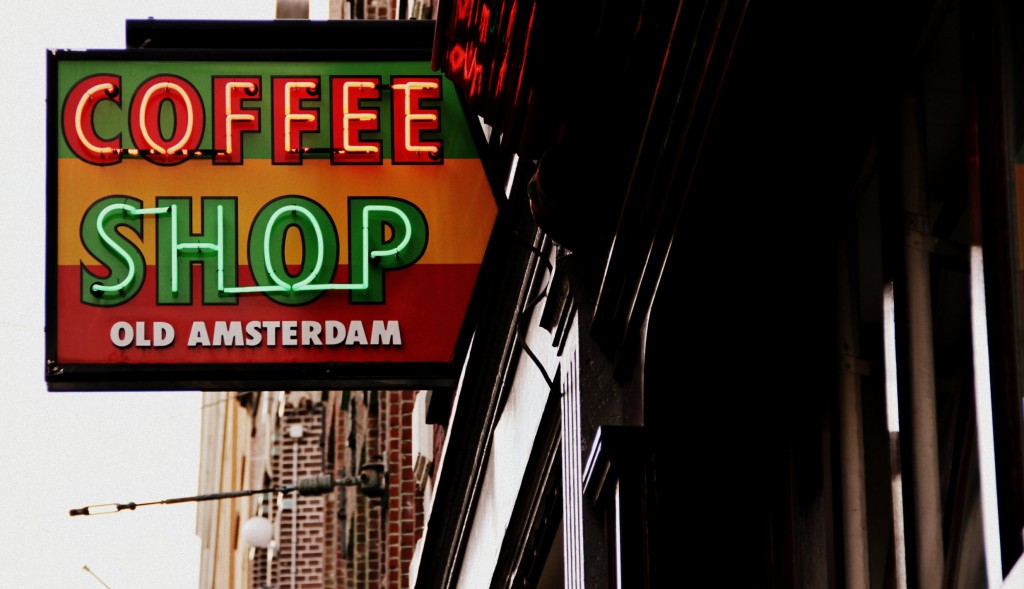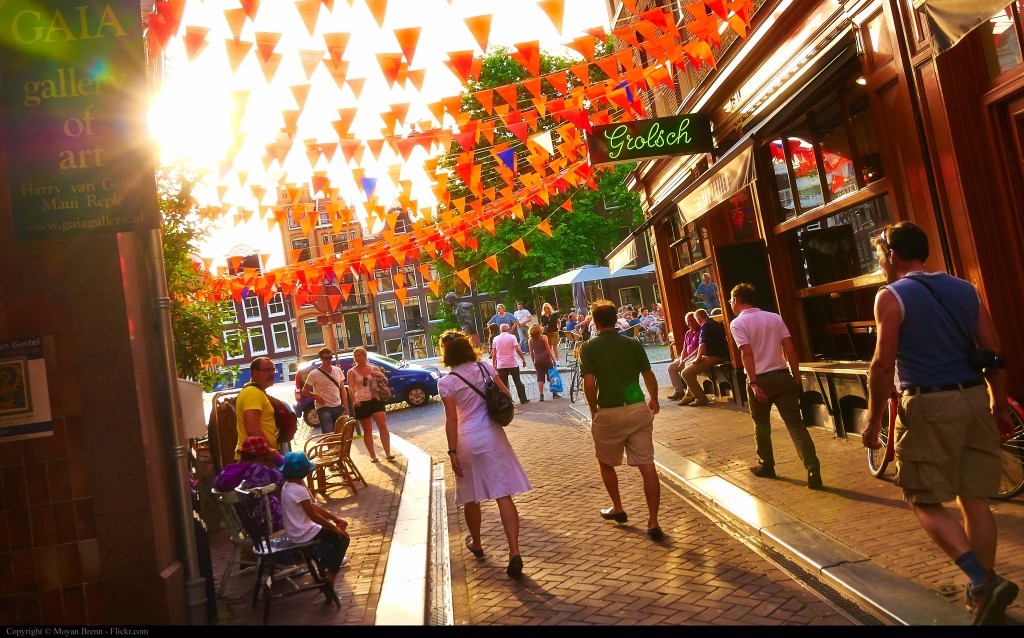In late September, news broke that the government of the Netherlands looked set to finally regulate the production of cannabis.
Draft legislation had been drawn up by Vera Bergkamp MP of the opposition D66 party, backed by GroenLinks and the Socialist PvdD, to implement legalisation of cannabis cultivation, thus ending the so-called ‘backdoor problem’ that has hampered genuine reform for dec ades. The Dutch Labour party even backed the plans, in defiance of their coalition partner, the VVD.
Bergkamp told an NOS broadcaster at the time:
“You can buy weed but you can’t grow and transport it, and that is wrong. If we regulate it, that will be good for health and to control criminality. A large percentage of the population and local councils support this measure as well.”
The Bill, if passed, would allow registered growers to cultivate cannabis on a large scale (the current limit is five plants) and to sell their produce to local coffee shops. It will also introduce quality controls, because, Bergkamp said, “People nowadays have no idea what they are smoking.” A slim majority of MPs backed the Bill in September.
Why now?
For the last 40 years, coffeeshops in the Netherlands have openly sold cannabis to their patrons, and millions of tourists have flocked to the nation’s capital, Amsterdam, to enjoy the relative freedom of decriminalised pot. But from day one, the Dutch approach has been beset by problems. Key among these is the fact that whilst it is perfectly legal for coffeeshops to sell up to 5 grams of cannabis to customers aged 18 or over, there has been no legal method of obtaining cannabis in the quantities required to keep the businesses afloat.
Shops are only permitted to have 500 grams on the premises at any one time, and large scale cultivation has always been illegal. This has led to the ‘backdoor problem,’ whereby coffeeshop owners and their suppliers are forced to break the law at the backdoor, in order to continue their legal business at the front. This legal limbo has led to the closure of many coffeeshops over the years, and is a flaw that has been exploited by over zealous law enforcement in order to make life as difficult as possible for otherwise law abiding business owners.
As well as causing legal difficulties for coffee shop owners, this system has inevitably meant that the production of cannabis, and the supply chains up until the point of sale, have been largely controlled by organised crime. This brings with it its own set of problems. Most obviously, there is the gang violence. As rival gangs fight over supply chains and territory, this violence has become more and more obvious – in 2016 alone, there have been 7 drive-by shootings at Dutch coffee shops.
In September, popular coffeeshop Green Place was closed down indefinitely by the mayor of Amsterdam after it was targeted by a gunman on a scooter. Despite a lack of evidence of any involvement in the incident, the owners of Green Place lost their business as a direct result of half-baked decriminalisation that doesn’t solve the problems of the black market.
Clearly this problem is not one that can be solved by further prohibition – when authorities tried to implement the ‘wietpas’ in the south of the country to stop cannabis tourism, violence and street dealing rose so sharply that the plan was soon abandoned. The solution must include regulation of the cannabis market if it is to drive out the gangs and put the safety of consumers – and potential innocent victim of shootings – first.
From recent headlines alone, it would seem that the Dutch government have finally come to their senses after 4 decades, but the unfortunate truth is that key ministers are still opposed to regulation. Last year a report on the effects of legalisation was dismissed by justice minister Ard van der Steur, despite concluding that illegal cannabis production was linked to criminal violence, fires, environmental and noise pollution, and the spread of legionella bacteria, and that legalisation would have a positive impact on public health. Van der Steur argued that the report did not prove that legalisation would lower crime, and that moves to legalise cultivation of cannabis should be resisted because they would encourage more young people to take up the drug. He did not offer any evidence of his own. Hopes remain high that this Bill – aided by the recent spate of shootings – may finally see the tide turn, but it is far from a done deal at this point, and with a general election looming any change will need to happen fast if it is to happen at all.
Suver Nuver Medical Social Club
Of course, this being the Netherlands, there are plenty of citizens who aren’t prepared to wait for the wheels of bureaucracy to turn, and are determined to show those in power how it should be done. One such group is the social club Suver Nuver. With premises in Groningen and Leeuwarden, and plans for expansion in Leiden and Eindhoven, Suver Nuver have used the reluctance of certain courts to prosecute cannabis offences to their advantage, essentially ignoring the law – in typical Dutch fashion – in order to provide cannabis oil to upwards of 5000 members. Their model does not encourage dealing of any kind, and includes safeguards to stop people from taking advantage of their generosity by stockpiling product for their own financial benefit.
By encouraging people to become members of the social clubs at a cost of just €10 per month, Suver Nuver, led by charismatic leader Rinus Beintema, have been able to accrue a certain amount of power and influence. Should the authorities decide to bring a case against them, they will not only have the resources required to fight for their right to produce and consume cannabis, they will also have witness testimony from 5000 individuals who use cannabis medicinally and recreationally, and who have seen first hand the benefits of cutting out the black market to a greater extent than the current coffeeshop laws allow.
Beintema is cautiously optimistic about the proposed plans for regulation, and believes that groups such as his have played a vital role in convincing the government that change needs to happen, whilst providing those in power with a model that they know works. Even though legalisation and regulation could potentially lead to the end of the club he has helped build from the ground up – despite their best efforts they are still to some extent reliant on illegally produced cannabis because of their sheer weight of numbers – Beintema, like millions of other Dutch citizens, is adamant that full legalisation would be of enormous benefit to the country as a whole.
Lessons Learned
When the Dutch first decriminalised cannabis 40 years ago, they took the first steps along a journey that will hopefully soon reach its end. Through decades of experimentation, sometimes with the support of public opinion and sometimes without, they have illuminated many of the pitfalls that can come with decriminalisation. Luckily for the rest of the world, those mistakes have been made so that we could learn from them. And it looks as though other countries are taking notice.
Germany recently announced plans for the legalisation of medical cannabis, and now at least one area of the country looks set to go one step further. A coalition of political parties in Berlin have announced their intention to push for a “scientifically monitored pilot project for the controlled distribution of cannabis to adults.” Whilst this is a far cry from nationwide legalisation, it is a sign that the old perceived wisdom of ‘decriminalisation-as-stepping-stone’ is beginning to crumble. The Dutch experience has shown lawmakers around the world that this model does not go far enough, that it merely sweeps many of the inherent problems of prohibition under the carpet. As a result it seems less likely that others will follow the Dutch route, as evidenced by the recent wholesale regulation across the USA and elsewhere.
There is of course one significant outlier in this theory – Portugal. Since decriminalising all drug use 15 years ago, the country has had huge success in lowering drug use, overdose deaths, and HIV infection among drug users, and yet despite some signs of public support for legalisation, it doesn’t look likely to happen any time soon. So why have the Portuguese not moved on? One possible reason could be simple complacency. Their decriminalisation project went far further than any before or since, and the successes are there for all to see, so why change it? Sure, organised crime still controls the drug economy, but unlike the Netherlands, there are no coffee shops in Lisbon, and little in the way of drug tourism. The majority of violent crime linked to the drug trade therefore still occurs out of sight, and out of mind. It may take a drastic event – like the spate of shootings in Amsterdam – to reignite the debate and force the government into action once again.
In the UK, change is even slower. Ironically, we do now have a piece of drug legislation on the books that does not criminalise users – the much-maligned Psychoactive Substances Act – and certain police forces around the country have made public their policy of not going after low-level users or producers of cannabis. But it is a postcode lottery, and it seems almost unthinkable that the Conservative government will suddenly decide to heed the lessons learned by other countries of the world, having so studiously ignored them so brazenly for so long.
Deej Sullivan is a journalist and campaigner. He regularly writes on drug policy for politics.co.uk, London Real, and many others, and is the Policy & Communications officer at Law Enforcement Against Prohibition UK. Tweets @sullivandeej


